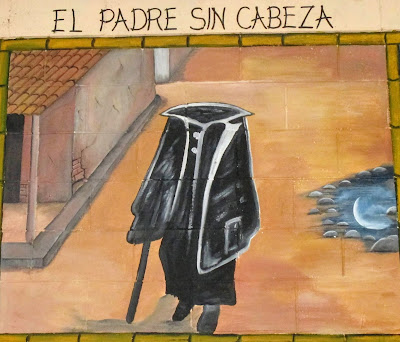Mission of Healing 2021: March's Theme is Community Hygiene
In El Salvador, when we talk about Community Hygiene, we focus on the environment and behaviors in the community which contribute to the wellness or the illness of the population. The specific areas the Salvadoran health ministry wished to focus on in 2021 include drinking water, waste water, latrines, garbage and mosquito-borne illness prevention.
Let's begin with mosquitoes. People who live in the temperate zones, including Europe and the United States, are becoming more aware of mosquito-borne illness as an increasing risk to the health of people. In El Salvador, as in other tropical and sub-tropical climate, illnesses such as malaria, dengue fever, yellow fever and more recently Chikungunya Virus and Zika Virus, are consistent threats to public health.
In 2021, El Salvador was declared to be free of malaria. This is very excellent news. However, dengue, Chikungunya and Zika continue to threaten the health of children, elderly and vulnerable populations and can run rampant in densely populated areas. These illnesses are spread among people through the bite of an infected aedes aegypti mosquito. En El Salvador, these mosquitoes are called zancudos and they bite during the day. They reproduce in clean water, such as puddles, barrels for storing clean water, and under potted plants. The best way to prevent mosquito-borne illness is to eliminate the habitat in which mosquitoes reproduce. Using photos from a training experience we had with local health promoters, we produced a helpful video. This is in Spanish, but the general message about eliminating habitat for harmful insects is universal.
We were able to use free online materials from public health departments and education departments from Latin American countries to create a collection of activity pages for small groups and families. Here is a little project which we put into English so you can try it at home.
Potable water is a resource which many people take for granted. There are only a very few places in El Salvador where the drinking water is actually safe for people to drink. Most people need to filter or treat their water. Water purification techniques can be as simple as placing water in clear containers and placing it in the sunlight for 1 or 2 days to kill bacteria. There are many good online resources, including a video for kids and print materials, which we put together for families with instructions for purifying water using a variety of methods. In case you are ever in a situation without access to potable water, this information may come in handy.
 |
| Hesperian Health Guides |
Waste water management is a challenge in many Salvadoran communities. We decided to address latrine care by creating a handy printed guide. The greatest danger of illness due to latrine management occurs as a result of flooding and landslides. We often hear about a family's "hole" caving in during an especially stormy period. When that happens, human waste can easily contaminate the home and surrounding soil. Proper building of a pit toilet was not something we wanted to include in our online Mission of Healing, but at least we could include some basics on proper waste management to decrease overflows. (Also, we ended up doing a pretty deep dive into a while variety of composting toilets. I am a fan.)
When it comes to gray water, the water produced by washing dishes, doing laundry and bathing, we called on one of our favorite eco-families to help us make a video in their home. Again, this video is in Spanish, but it is pretty obvious what the family does with its gray water.
While wherever we live, we may not have soapy streaks on our streets flowing into soapy rivers (as many of us have seen in El Salvador), we do need to think about the quantity of gray water we produce and how we could re-use that water in a way which is beneficial to the earth. (If you want to do a deep dive into something cool, check out the toilets used in Japan that have the sink on top of the toilet tank which allows the used hand-wash water to provide the next flush for the toilet.)
During the pandemic, the annual Mission of Healing North Family Wellness Fair has been transformed into the 2021 Mission of Healing North virtual or online or socially distant edition. We are producing a yearlong series of videos and printed packets which can be shared in the home or in small church groups. We are learning a lot along the way, making improvements and adjustments. While the primary audience is in the northern micro-region of Lutheran Church communities in El Salvador, we are producing some materials in English so international partners can follow along or participate with their churches. Here are the previous stories about this year's experience:
January: Introduction to the Mission of Healing Online Edition







Comments
Post a Comment